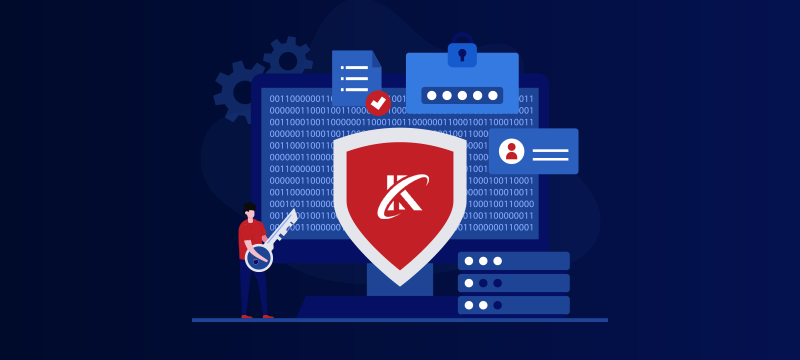Cyberattacks are becoming more frequent, sophisticated and pernicious. Increasingly, they are designed to spread across entire networks, infecting and taking control of whole swathes of connected devices. No business is immune from such attacks, as gangs actively seek out weaknesses in systems in order to exploit them. To help minimise the threat, here are five helpful tips to ensure network security.
- Stay informed
Thousands of new security threats are discovered every day. Some are new vulnerabilities discovered in existing software while others are new forms of malware created to infect systems. To keep ahead of the game, it is important to stay informed about new threats that are relevant to your business so that you can take proactive measures to stay secure. The best way to do this is to subscribe to security notifications from the developers of any software you use, your service provider and any security tool vendor. This way, if your infrastructure or one of the applications that you are using is at risk, you will be made aware quickly and can take appropriate action, such as installing a security patch. - Update software promptly
While hackers constantly look for new ways to attack applications, app developers work ceaselessly to close any security holes that could be exploited. It’s a cat and mouse game that results in the never-ending release of new updates. The key advantage for the hacker is that these updates can come so frequently, that businesses don’t always get around to updating quickly enough; as a result, even when there’s a fix available, many networks remain vulnerable.
To minimise the chance of being attacked, it is absolutely vital to update as soon as you can. Where possible, implement automatic updates – that way, you don’t even need to think about them. - Secure wireless networks
The widening availability of IoT devices means many more machines are now connected to business networks using wi-fi. At the same time, many companies, especially those in hospitality and retail, have wi-fi networks that customers are also allowed to access. The first action companies should take is to create different wi-fi networks for business and customer use. Business networks need to be kept highly secure, while customer networks often need to be open or have easy-to-use passwords. Separating the two also prevents malware infections on customer devices from passing to the business system.
The use of strong passwords is essential on business networks and where possible, this should be reinforced with two-factor authentication. For the increasing number of businesses that now have remote working in place, the use of virtual private networks, VPNs, is highly recommended. - Train your employees
Cybercriminals thrive on employee security ignorance as this makes it much easier to carry out phishing, social engineering and other forms of attack. It is essential, therefore, that new recruits are given security training during induction so that they fully understand the company’s security and data protection policies and protocols. They also need to know about the threats that companies face, such as phishing emails, how to spot and report them, and what actions to take if an attack takes place. As new threats emerge all the time and people tend to get complacent, it is also important to have regular security reminders and update sessions. - Build your security arsenal
There are some exceptionally powerful security tools available today that can help protect against a wide range of threats. These should be used in conjunction with each other to provide a comprehensive and overarching shield around your network.
These tools include advanced firewalls, like FortiGate, with its built-in malware and intrusion protections, application firewalls, vulnerability scanning, remote, encrypted backup solutions, SSL certificates, email encryption, and email spam, phishing and virus filtering. If your network is hosted, many of these will be offered by your service provider, some may even be included in your package.
Conclusion
Advanced hacking tools and sophisticated malware are easier than ever to get hold of. Indeed, some cybercriminal gangs now sell cyberattacks as a service to other criminal outfits. As this is happening at a time when businesses are becoming more reliant on connected IT systems, the need for robust network security is stronger than ever. Hopefully, the tips provided here will enable you to keep your networks more secure.
As a responsible service provider, WHUK deploys advanced, industry-leading tools to keep our customers’ systems and data secure, as well as providing a wide range of additional security features and services. For more information about our hosting solutions, take a look at our homepage.

